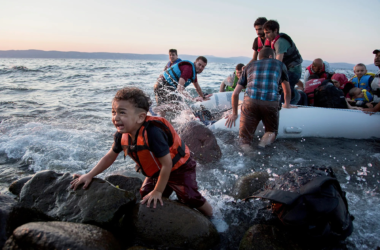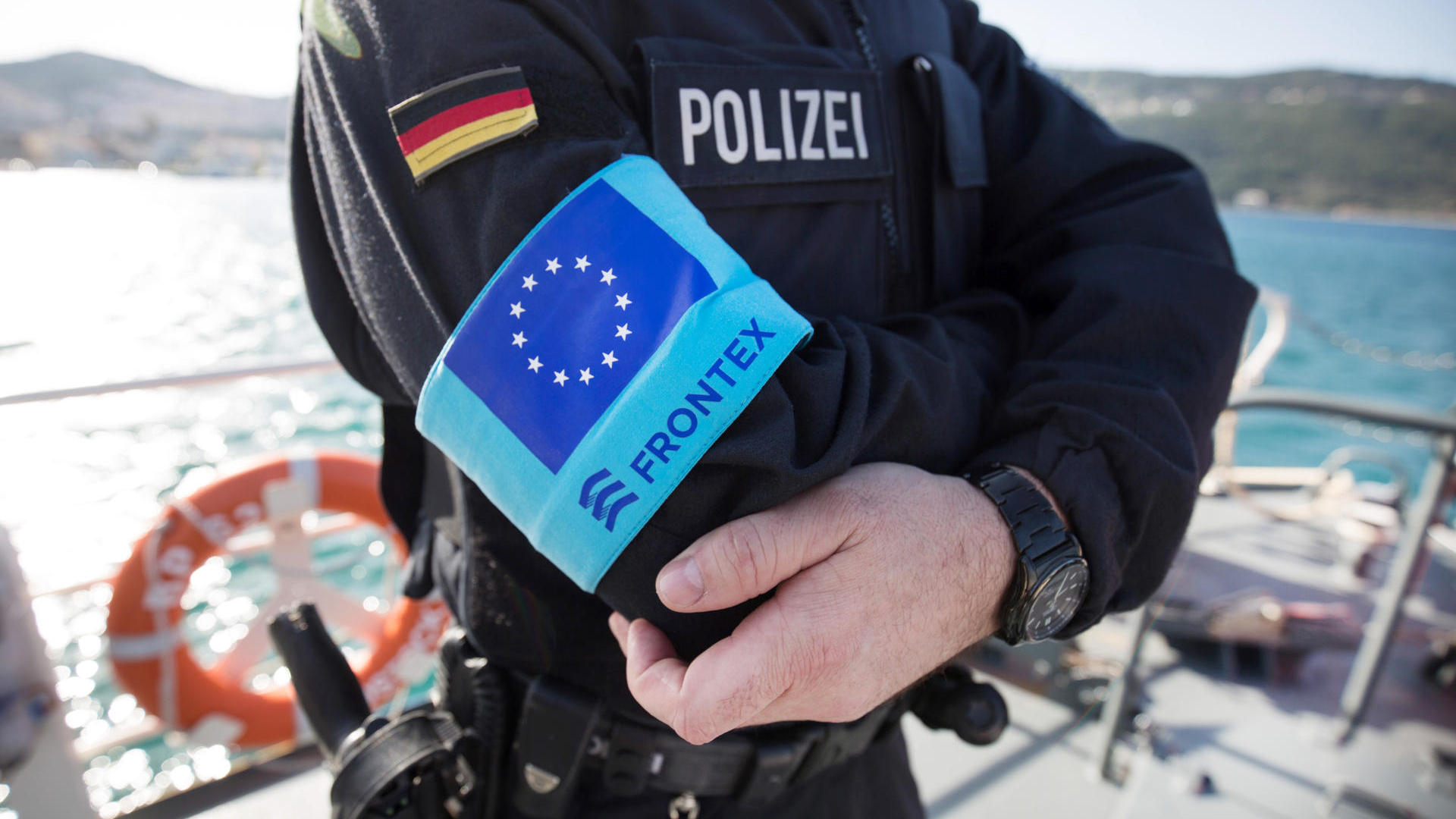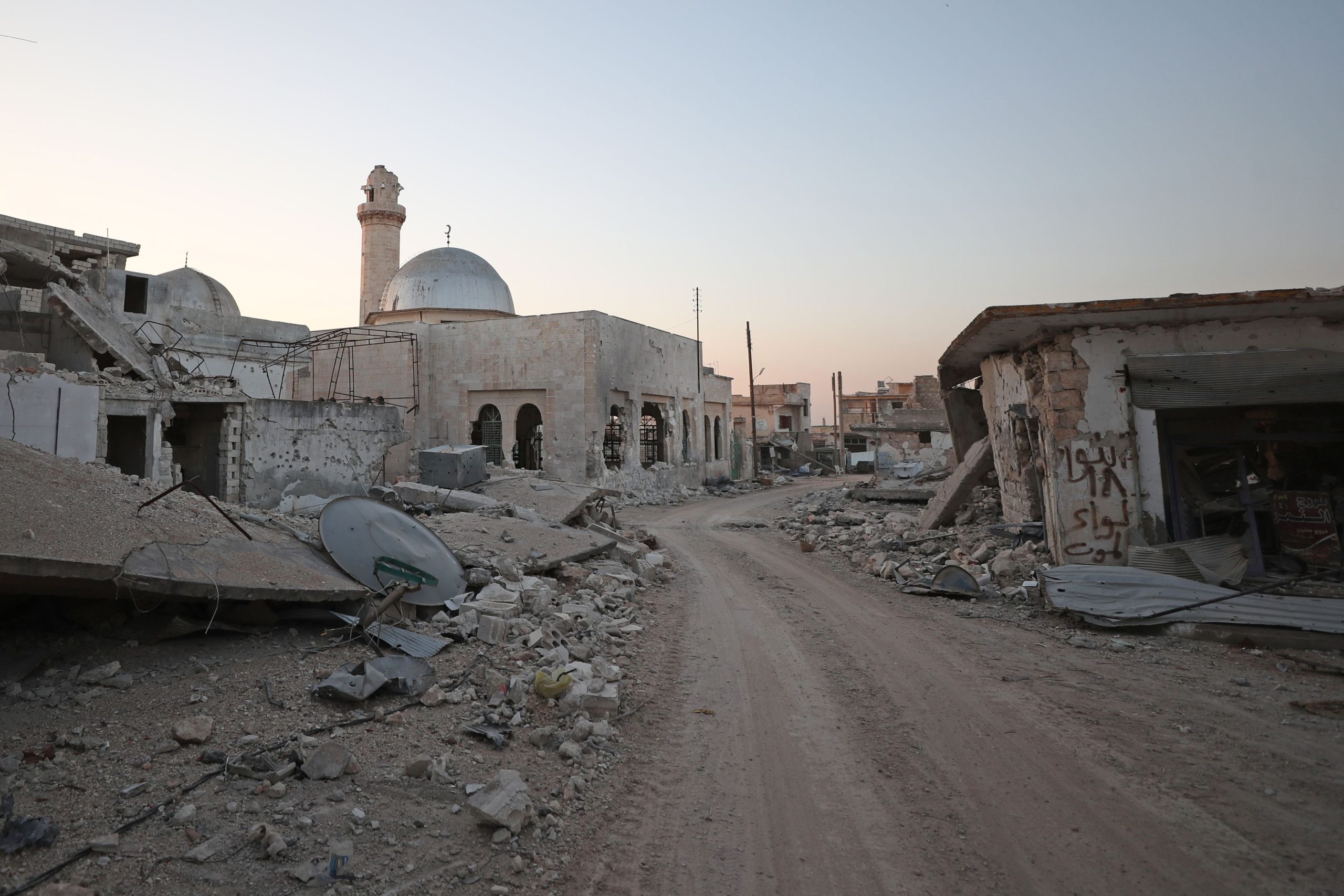ABSTRACT
Changes in perceptions about security have made an effective border security system a basic requirement for all countries. Border security is not only the countries’ own problems but also plays an important role in the establishment of international unity and trust-building. The weaknesses of a country in border security affect neighboring and other countries as well. When the European Union (EU), which was established for the purpose of economic integration, reached this goal in 1992, the aim of political integration came to the fore. The EU has targeted that the member states should act jointly on visa procedures to be followed at country entries, immigration, asylum, and the prosecution of cross-border crimes. As a result of the Arab Spring that began in 2011 and the mass influx resulting from the Syrian war, border management has come to a position of importance for all EU countries. The EU needs common practices and decisions on border controls. It has developed an understanding of border management with common practices in the European Union on border controls with Schengen legislation and other EU legislation. In this context, migration has become one of the most important social and economic problems in the EU. Effective border protection has been vital for the EU, as international migration, terrorism, and organized crime have steadily increased.
Border Security in the EU
With the Maastricht Treaty, which entered into force in 1993, EU Member States agreed on a common migration and asylum policy. With the Amsterdam Treaty, which entered into force in 1999, external border controls, guaranteeing the freedom of movement of the citizens of the Union and security and justice were included in the policies of the Union.
The free movement of persons brought under the Schengen Convention has resulted in criminals also enjoying this freedom. In this direction, the Schengen Information System (SIS I) was established as a preliminary measure within the Schengen framework, and a common communication system for preventive border control in the Schengen area was established (ATGER, Anais F, 2008; 8). When border security started to pose a threat to the countries and the union, the units responsible for the European Union border security started to be formed in order to prevent this (Aykaç, Yertüm: 21).
One of the most important and known as FRONTEX, the full name of the agency is the European Agency for the Management of Operational Cooperation at the External Borders of the Member States of the European Union. Frontex is an EU institution established to manage cooperation at the external borders of EU member states and to ensure the security of their borders. It was established to ensure the security of the borders with neighboring countries that are not members of the Union. Rapid Border Intervention Teams managed by FRONTEX, on the other hand, intervene in migrant and asylum seeker groups trying to cross the border. Apart from FRONTEX, two other units responsible for border security are the European Asylum Support Office EASO and EURODAC.
Units Responsible for Border Security in the EU
While EASO is responsible for the establishment of a common asylum system, EURODAC is a system created by taking the fingerprints of asylum seekers over the age of 14 and recording their identities (Hopyar, 2016: 3).
Heads of State allocated a large amount of budget for cooperation and the European Asylum Office (EASO) and Europol to strengthen external borders. Europol is an organization established with very wide powers as the police force of the European Union as a result of the Maastricht agreement. Europol is to increase the efficiency and cooperation of competent authorities in Member States in preventing and combating terrorism, drug trafficking and other types of international serious crime, which need a common approach of the Member States (Europol Convention). These units contribute to ensuring a high level of border security within the Union. Another institution established to ensure effective management of external borders and to address migration challenges at these borders is the European Border Surveillance System EUROSOR. This institution has been implemented in order to contribute to more effective control of external borders by the European Union (EU), especially on the increase in deaths related to illegal immigration. The aim of CEPOL, the European Union Law Enforcement Training Agency, was determined as “to train high-level law enforcers of the member states and to develop and contribute to a common approach to the problems faced by member states in combating crime, preventing and maintaining and maintaining public order” (Cepol 2012; Bozkurt, Özcan and Köktaş 2011). The Council of Europe decided to establish an international peacekeeping force composed of civilian personnel in 2000 to help manage crisis situations and prevent conflicts in non-EU borders. EUCIVPOL (EU Civil Police Force) uses its power in order to increase the effectiveness of the European Union, to adapt to the developing conditions, to provide solutions to the instabilities around it and for strategic reasons. The European Monitoring Centre for Drugs and Drug Addiction (EMCDDA) was established to provide the EU and its Member States with a factual overview of Europe’s drug problems. Today, the EMCDDA provides policymakers with the data they need to create drug laws and strategies. At the European level, the EU-LISA agency is responsible for the operational management of the SIS II, VIS and EURODAC information systems. It particularly implements security measures, controls the separation of data in three systems and ensures compliance with data protection principles (EU-LISA, 2019a).
Frontex’s Purpose and Legal Status
FRONTEX was established on October 26, 2004 and de facto took office on May 1, 2005. Frontex is headquartered in Warsaw, capital city of Poland. Frontex is an institution with great goals such as combating migrant smuggling, preventing economic collapse in the EU, increasing the security of EU citizens and saving migrants’ lives. When Frontex is examined in the historical context, it appears that the agency stands out in terms of providing more surveillance for ‘security’ reasons (Bigo, 2011). The fundamental values and rights of the organization are clearly defined in Frontex’s Foundation Regulations.
This Regulation respects and observes the fundamental rights recognized by Article 6 (2) of the Treaty on European Union and set forth in the Charter of Fundamental Rights of the European Union. Frontex is an EU agency. Therefore, this institution is legally bound by the European Union Charter of Fundamental Rights and is subject to the authority of the European Court of Justice. The establishment of Frontex was due to the growing need for cooperation in EU external border control. With the end of the Cold War, the phenomenon of immigration has become a controversial issue. With the expansion of the Union, many difficulties have been experienced in border security management. Especially after the September 11 incidents, the phenomenon of immigration started to increase rapidly due to terrorism and the Union felt the need to increase border security.
Extensive changes have also been made in the Agency’s duties due to the insufficiency of Frontex’s structure and powers in protecting the EU border and coast. Frontex’s powers were increased in 2016 and new tasks were added to the agency. These are tasks such as organizing joint operations with member states, emergency response to aid member states, supporting search and rescue efforts, preparing European Border and Coast Guard teams, fighting organized cross-border crime and terrorist activities. The EU wishes to prevent the flow of immigrants by keeping its borders closed to third-country nationals as much as possible. The biggest reason for this is that immigrants are beginning to be perceived as a security threat.
There is no developed framework for the ‘accountability’ of Frontex operations. Within Frontex, at the basis of the decision-making process, each EU member is responsible to the Board of Directors and the Executive Director (Baldaccini, 2010: 236). The European Parliament was unable to influence the process of Frontex’s establishment, and its powers to monitor Frontex’s activities in its current functioning have been limited. It emerged more strongly after the 2007 amendment of the Establishment Regulation that allows Frontex employees to use force. Article 18 of the founding regulation grants Frontex personnel immunity and allows personnel to use force, including the use of weapons. As an EU agency, Frontex has been legally accountable to the European Court of Justice since the entry into force of the Lisbon Treaty. Under international law and European Union law, border protection and control are among the exclusive powers of the member states. In this context, Frontex assists member states in the protection and control of borders only when necessary. Frontex aims to establish cooperation between member states. This is also true for land, sea and air borders.
Frontex’s Activities in the Mediterranean and Aegean
What powers Frontex has in its maritime operations is regulated by the European Parliament and council regulation 656/2014, which sets out the rules for the surveillance of external maritime borders (Regulation No. 656/2014 of the European Parliament and of the Council, 2014). Accordingly, member states must act in accordance with international law, their responsibilities arising from international law, and EU law in operations at sea. It is envisaged that the measures to be taken in this context will be proportionate, respect for human dignity, fundamental rights, the rights of refugees and asylum seekers. Due to the economic imbalances in the world, illegal immigration and human trafficking incidents that have increased in the Mediterranean basin since the early 2000s cause serious human rights violations in the Aegean Sea today. Illegal immigration incidents in the Aegean are due to the fact that the Turkish-Greek maritime border in the Aegean is still uncertain. Hundreds of people die in the Mediterranean and Aegean Sea every year as a result of the protectionist policies of European states. The ambiguous political and legal nature of the EU regarding who and how it manages its external borders results in human rights violations in the Mediterranean and Aegean.
Since the early 1970s, the problem of limiting maritime jurisdiction in the Aegean Sea between Turkey and Greece began to occur between coastal states in the Eastern Mediterranean with the discovery of hydrocarbon reserves in the early 2000s. At the heart of the problems related to maritime areas in the eastern Mediterranean are the areas of the continental shelf and the exclusive economic zone (Mone), which have not been agreed upon by the coastal countries (Yaycı, 2012: 20).
The issue of maritime jurisdiction between Turkey-TRNC and Greece-SGCA has come to the fore due to other problems such as exploration and drilling activities that it brings with it (Üstün, 2016: 1). SGCA and Greece are constantly moving their disputes with Turkey to the European Union. It is clear that the EU, which internalizes problems related to the maritime jurisdictions to which its member states are parties in the eastern Mediterranean, has become a party to the problem between Turkey and SGCA-Greece and has approached the dispute politically, ignoring the legal dimension of the issue. Apart from Frontex’s internal audit mechanisms, there is no mechanism for automatic cessation of operations in cases of human rights violations. The agency does not accept any mechanism that would create liability. This poses a major problem on the Greek-Turkish border.
Frontex does not intervene in neutral zones. The border surveillance policies implemented by Greece and Turkey focus more on disproportionately stopping, state-of-the-art border surveillance, the proliferation of detention centers and forced repatriations than on the acceptance and movement of migrants. The illegal detention of migrants and the lack of adequate safeguards for asylum seekers have been condemned by the European Court of Human Rights in both Greece and Turkey. Frontex enjoys little democratic oversight and supervision by the European Parliament (EP), the Court of Justice and the public. Without oversight, the legality of duties is unlikely.
In conclusion, changes in countries’ perceptions of security brought about the development of different systems in border management. The right of free movement at internal borders in the European Union has brought the problem of protecting its external borders. The increasing immigration phenomenon especially after September 11 has revealed that the EU should establish institutional border security. Unable to foresee the migration crisis and develop a pre-crisis preventive and effective policy, the EU has established many institutions in order to ensure border management security and improve inter-state cooperation and coordination. Frontex is one of the most important of these organizations. Frontex is an organization with ambitious goals to improve the security of EU citizens and save the lives of migrants. However, while the institution fulfills its objectives, it acts in accordance with the interests of the EU and causes human rights violations. The EU perceives the immigration problem as only a “security problem” and causes many violations to protect its borders.
Prepared by Tuba Yıldırım for The FEAS Journal.
References
- ARMAOĞLU, Fahir; 20. Yüzyıl Siyasi Tarih, Alkım Yayınları, Genişletilmiş 12. Baskı, İstanbul, 2000.
- BALDACCINI, A. (2010) ‘Extraterritorial Border Controls in the EU: The Role of Frontex in Operations at Sea’, 229-257 in Ryan, B. & Mitsilegas, V. (eds.) Extraterritorial Immigration Control: Legal Challenges. Leiden, The Netherlands, Martinus Nijhoff Publishers.
- COUNCIL OF THE EUROPEAN UNION (2004) Council Regulation (EC) No 2007/2004 Establishing a European Agency for the Management of Operational Cooperation at the External Borders of the Member States of the European Union.
- FRONTEX (2016b) “Joint Operation Poseidon (Greece)”, Pressroom, , (28 November 2017).
- Gery Simpson, Great Powers and Outlaw States Unequal Sovereigns in the International Legal Order, CSICL Cambridge Srudies in International and Comparative Law, Cambridge University Press, 1. Bası, 2004
- Keser, Ulvi, Ak, Gökhan “2000’li Yıllarda Sorunlu Sularda Vaziyet: Adalar (Ege) Denizi’nde Sınırlar, Yasadışı Göç ve AB Sınır Yönetimi”, Bartın Üniversitesi Edebiyat Fakültesi Dergisi, ISSN:2547-9865, p.2, Aralık 2016,
- Keser, Ulvi, Ak, Gökhan “2000’li Yıllarda Sorunlu Sularda Vaziyet: Adalar (Ege) Denizi’nde Sınırlar, Yasadışı Göç ve AB Sınır Yönetimi”, Bartın Üniversitesi Edebiyat Fakültesi Dergisi, ISSN:2547-9865, p.2, Aralık 2016,
- y..y., “AB’nin Dış Sınırlardaki Yeni Gözü EUROSUR Devrede”, 2 Aralık 2013, Çevrimiçi: https://www.aa.com.tr/tr/dunya/ab-nin-dis-sinirlardaki-yeni-gozu-eurosur-devrede/200411
- y.y., Çevrimiçi: https://frontexwatch.wordpress.com/ Erişim Tarihi 10 Ağustos 2018,
- Aykaç, Mustafa, Yertüm, Umut, “Avrupa Birliği Göç Politikalarının Gelişimi; Misafir İşçi Kabulünden Sığınmacı Akınına”, Sosyal Siyaset Konferansları, sayı 70, 2016/1,
- ATGER, Anais F., “The Abolition of Internal Border Checks in an Enlarged Schengen Area: Freedom of Movement or a Web of Scattered Security Checks?”, Centre for European Policy Studies, Sayı: 8, 2008
- Hopyar, Z. (2016) “Avrupa’da Göç ve Mülteci Olgusu”, Diaspora Araştırmaları Merkezi, Ocak 2016 Raporu
- Bozkurt, Enver; Özcan, Mehmet ve Köktaş, Arif. 2011. Avrupa Birliği Hukuku. Asil Yayın Dağıtım
- Üstün, Nazlı, (2016). “DoğuAkdeniz’de Enerji Politikaları ve Kıbrıs Müzakerelerine Etkisi”, 1.2016, http://www.kto.org.tr/d/file/dogu-akdenizde-enerji-politikalari-ve-kibris-muzakereleri—nazli-ustun
- Yaycı, Cihat, (2012) “Doğu Akdeniz’de Deniz Yetki Alanlarının Paylaşılması Sorunu ve Türkiye”, s. 20.
- BALDACCINI, A. (2010) ‘Extraterritorial Border Controls in the EU: The Role of Frontex in Operations at Sea’, 229-257 in Ryan, B. & Mitsilegas, V. (eds.) Extraterritorial Immigration Control: Legal Challenges. Leiden, The Netherlands, Martinus Nijhoff Publishers.
- BIGO, D. (2011) ‘Freedom and Speed in Enlarged Borderzones’, 31-50 in Squire, V. (ed.) The Contested Politics of Mobility: Borderzones and Irregularity. New York, Routledge.
- 656/2014 sayılı Avrupa Parlamentosu ve Konsey Tüzüğü, OJ L , 15 Mayıs 2014. Bkz. C-355/10 European Parliament v. Council of the European Union [2012] ECR I-0.
- EU-LISA (2019a). EU-LISA: Who We Are? https://www.eulisa.europa.eu/AboutUs/Who-We-Are












